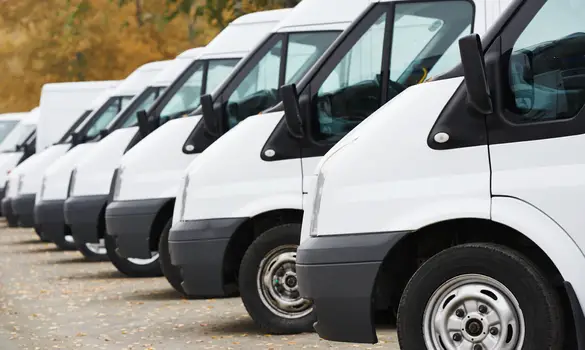
One of the conundrums facing modern business owners is how to obtain and manage their inventory of vehicles. Traditionally, vehicles were bought outright, but in recent years leasing has become more popular as a financing method. So, how do the two stack up against each other? Read this post to learn about the pros and cons of leasing vs. owning a business fleet.
Vehicles As Business Assets
If vehicles are owned, as opposed to leased, they can be counted among company assets. Among other things, this can help to secure finance for the business if required, and may be helpful for the company in the event of debt.
Mileage And Insurance
Moreover, mileage allowances are generally not an issue with owning a vehicle fleet-when leasing, it may be necessary to accurately forecast how many miles the business is expected to do as a whole, to avoid paying excess charges. Companies are also able to secure their own insurance deals when purchasing. You can usually obtain lower car insurance rates when you buy a car. Some lease providers include car insurance as part of their deal, but the majority leave this for the lease holder to take out themselves. This can either be tailored to each customer or be a blanket price across the country. The latter causes the insurance to be much higher than organizing yourself.
Company Suitability
Very large businesses, particularly at the corporate level, often have their own mechanics, garages and dedicated staff for handling vehicles. In this instance, they already have the infrastructure set up for managing fleets. Therefore, it may make more sense to purchase outright. They should be able to handle looking after such a fleet rather than needing specialists.
Flexibility
It may well be the case that a rapidly growing business needs the flexibility of a shorter lease. These leases come in handy in case circumstances change. They also work well when committing to a large fleet purchase is not an option. With leasing, many different duration terms are often available. These terms typically range from a month (about 28 days) for shorter-term leases or up to 6 or 12-month leases and beyond for more long-term contracts. Although some leasing companies can be inflexible once initial terms are agreed, plenty of others have flexibility within their agreements to change mileage allowances. You can also alter the leasing duration and more as the needs of the company change with time.
Cash Flow
Making a large upfront payment for a fleet of vehicles can be a serious drain on a small business’s cash reserves. It may seriously impact profits in the short term. This risk is largely reduced with leasing. Leasing offers manageable monthly installments that help to spread the cost of vehicle acquisition out over a longer period of time. Consider leasing to avoid major cash flow problems for your business.
Business Image
Additionally, many customers will at least partially judge the credibility and trustworthiness of a business on its vehicle appearances. If those vehicles were purchased outright several years previously and look a little worse for wear, that perception may not be entirely positive. In contrast, businesses that lease vehicles can constantly renew their cars. They can present a positive picture to new and existing customers more often.
Maintenance
Most reputable business orientated leasing providers will include regular maintenance as part of the contract, which simplifies fleet management considerably for companies using it. For smaller companies this may be especially beneficial. These companies are unlikely to be able to set up and sustain the infrastructure required for a smaller-scale fleet without incurring prohibitive costs, due to economies of scale.
Depreciation
One of the main problems with a business owning all of its vehicles is that the cars will depreciate in value. This may add to the costs of maintaining a fleet. It’s not unusual for cars to lose 50% or more of their value in the first 3 years of usage. Although this does depend a lot on the make and model as well as the usage the car receives, it’s potentially a high level of capital expenditure that a business would have to write off as lost.
With business leasing, this is much less of a problem. Companies have fixed monthly costs and much more flexibility. You can retain a fleet of modern, well-maintained cars without worrying about resale values. The leasing company takes on the stress of depreciation.
To Buy Or Lease?
Overall, although owning a fleet does have its benefits, leasing is often a great option for businesses. Business owners who make the decision to lease can usually get on with the day to day running of the company easily.
 Business First Family Business, Accounting, Finance, Investing, Marketing And Management
Business First Family Business, Accounting, Finance, Investing, Marketing And Management